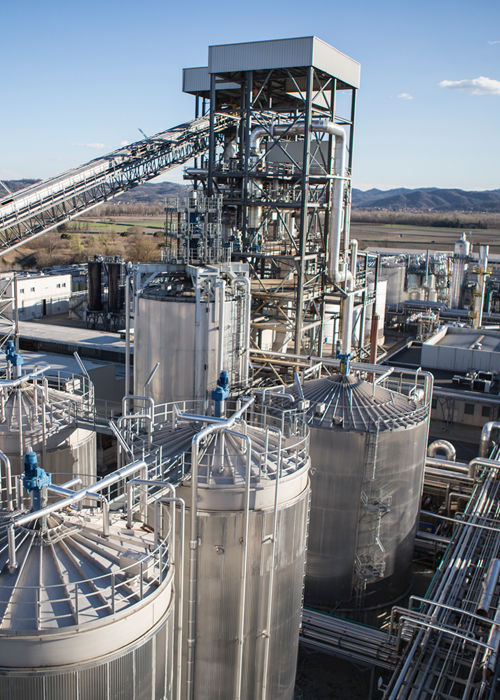Processes using renewable raw materials are our direct contribution to the decarbonisation strategy. For this reason, we have decided to expand our licensing portfolio with innovative technologies that allow us to transform agricultural and forestry residues into valuable resources. The first example is PROESA®, our proprietary technology for the production of cellulosic ethanol, also known as second-generation ethanol (referred to as ‘Advanced biofuel’ by the EU), through a process of hydrolysis and subsequent fermentation of abundantly available biomass, such as agricultural waste, wood chips and energy crops.

Renewable chemicals
We start from alternative and renewable sources to offer sustainable products with a view to decarbonisation.
FIND OUT MORE
Proesa
PDF 1.94 MB
